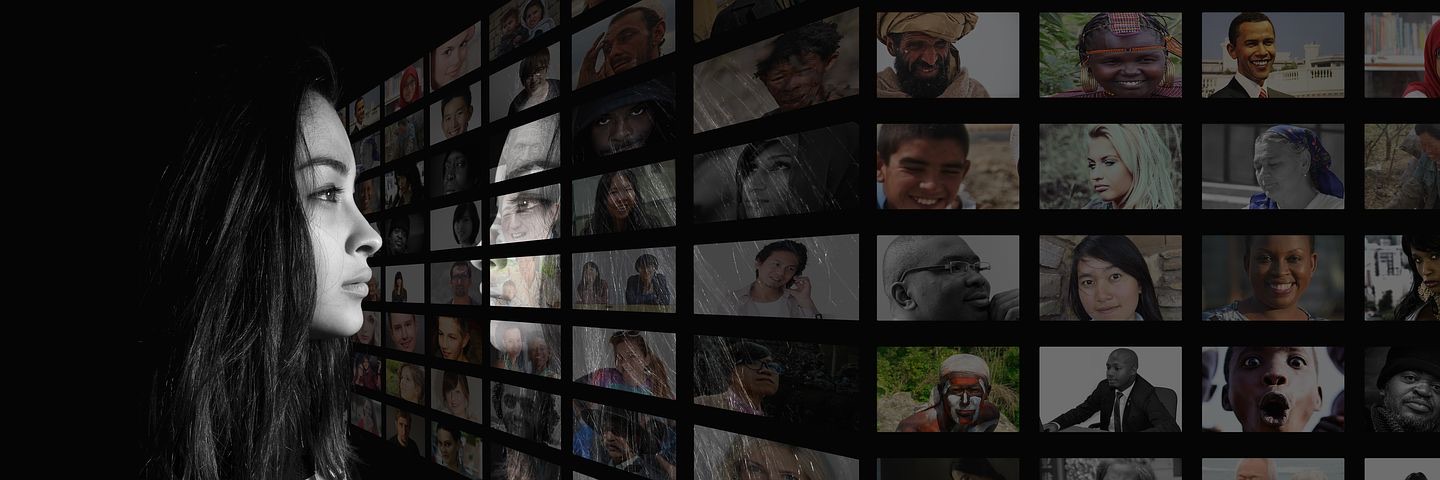Your Difference As Your Differentiator: Beyond Self-Acceptance To Unleashing Our Brilliance
Connection and Belonging: The Real Motivation for Blending In
Humans are relational beings and as such we have an inherent need to connect with others. This need for connection is a reflection of our desire to be seen, felt, heard, loved, valued and accepted. Due to this need to connect and belong, there is a tendency to want to minimize our differences and be like everyone around us because similarities make us feel connected, even if the connection is superficial. This causes us to try not to stand out or to be different. Standing out can shine the spotlight on us and many times we want to hide from this spotlight because it feels too vulnerable and too exposing. We are ashamed of our differences because somehow it makes us feel as if we are less than and it confirms our personal fear of being unworthy.
Losing Connection With Our True-self and Operating Out of the False Self
The problem is that when we try to fit in and cut off the part of ourselves that is different, it is an act of violence against our souls and a little part of our true selves die with each instance. We lose our authenticity and maybe even the thing that makes us special. In business like terms, we lose our competitive advantage.
There is a tension we feel between maintaining the status quo/ being the same which feels safe and being different, which feels exposing and uncomfortable yet may just be the key to propelling us forward.
This concept of blending in and not being different is very deceptive because the very thing we feel that is so shameful about ourselves has the possibility of being one of the most magnificent things about us. This shame causes us to deeply construct a false version of ourselves that causes us to lose connection with who we authentically are. This construction maybe so deep and started at such a young age that we are not even sure who this true self is. The journey to dismantling the false self is one that we decide to embark on as we aim for true liberty and re-birthing.
Assimilation versus Integration
Assimilation is the adaptation of the ways of another culture and fully becoming part of that society. The underlying assumption of assimilation even if unconscious is that there is a “right” way of being and everyone should evolve to adapt to the ways of this higher, right way of existing. I don’t believe in assimilation, as I believe all cultures have unique and beautiful things about them, which makes them all equal.
Integration should be the goal rather than assimilation because it maintains the dignity, value and importance that each culture brings. Integration is incorporating individuals from different cultures or groups into a society as equals.
A Look At How Various Cultures Take On Shame
Various ethnic groups and cultures have experienced shaming messages of how they don’t belong and it has manifested itself in various ways.
Black women have historically received the message that their hair texture is not beautiful and in the corporate world even unprofessional but there is a movement of black women who have decided to be unapologetic about this “ideal standard,” come out of hiding and liberate their natural kinky curls.
Ursula Burns, ex-CEO of Xerox is one of the many successful women of African descent who have modeled this and even inspiringly stated “instead of your differences becoming a burden, it should be an opportunity for you to distinguish yourself.” The recent release of the movie Nappily Ever After based on the novel of the same name, chronicles one woman’s liberating journey of self discovery, which led her not only to accept her natural hair but leveraging that difference to innovate and invent products, bringing not just service to the world but profit with this new business adventure.
Then there are some Asians who decide to have plastic surgery on their eyes to achieve a more westernized “round eye” look. This increase in this round eye surgery in recent years elevates non Eastern standards of beauty while disowning natural Asian beauty when it relates to the shape of the eyes.
There is the body shaming that women of all ethnic backgrounds receive particularly when they don’t naturally fit into the unrealistically thin look of a pre-pubescent girl that most women will lose (if they have it) once they approach adulthood. If your body is naturally thin even into adulthood, then celebrate that, nothing to be ashamed about and the majority of us who are not, let’s own that and celebrate that too! The idea is to celebrate our authentic features in all its forms and not to idealize one at the peril of the other. Not to mention that we are more than our looks and bodies, ladies!
A white paper published by the Deloitte Leadership Center for Inclusion, studied 3,000 individuals in executive leadership roles on the concept of covering in the workplace based on appearance, advocacy, affiliation and association. When thinking about appearance-based covering, the study showed that 67 percent of women of color cover in the workplace based on their appearance. Most of these people who admitted to appearance based covering believed that it was somewhat to extremely important for them to do so for their professional advancement.
So what if your difference isn’t physical but something else like religious background or language?
As a native speaker of English I have always been a bit jealous of my non-anglo counterparts who are able to seamlessly go between two, three or more languages. This fluency in multiple languages opens up unbelievable life experiences for you to connect with others in a way that you wouldn’t if you were not able to converse with them in their native tongues. Not to mention the increased business opportunities this multi-lingual ability opens up. Yet there is still a lot of shame associated with speaking English with an accent or even speaking any other language but English in your home here in the US. I wasn’t aware of this myself until a friend of mine growing up expressed how they would probably not allow their children to speak Spanish at home because they didn’t want them to experience the level of discrimination they felt subject to because of their accent as an immigrant growing up in the US. I remember being so heart broken that they thought like that but understood where they were coming from. I find it absolutely ludicrous that we live in a society where people could think having more knowledge, i.e. fluency in multiple languages as something that they have to be ashamed of. Yet another example of the inferiority that comes along with assimilation rather than the dignity associated with integration. We need to challenge this perspective so that our eyes can be opened up to the truth that these differences should be not just accepted but celebrated and leveraged as competitive advantage and personal differentiators.
A New Perspective: Powerful Questions
I can’t list every single possible difference that there could be as each difference is as wide in possibility as the almost 8 billion people living on earth now. Even if I didn’t mention the thing that makes you feel the most different and perhaps there is some shame associated with that difference, what if you spun that thing on its head and thought of it as your differentiator or your advantage? How would life be different for you? How would it affect how you thought, acted and the attitude with which you showed up? What would be your impact on those around you, due to releasing yourself from this “burden” as Ursula Burns said and look at it as an opportunity to distinguish yourself? I believe the thing that we tend to fight the most about ourselves can be the thing that sets us the most apart in a good way.
Oprah Winfrey was fired from her new reporter job in Baltimore early in her career because she apparently got too emotionally invested in her stories. Probably not a great fit for television news but absolutely perfect for a talk show host and now media proprietor … a few billion dollars later, I am sure she has no regrets for not “fitting in” to some standard because that difference was her differentiator.
Action in reflection
Go back to the reflection questions above and take sometime to reflect and journal on them this week.
How would life be different for you if you viewed your difference as your differentiator vs being a source of shame?
How would it affect how you thought, acted and the attitude with which you showed up?
What would be your impact on those around you?
For additional strategies in building your confidence check out this article.
I invite you to start doing the work of embracing the authentic you and setting her free, her capacities and abilities will surprise you as she unleashes her power!
If you found this post helpful, I want you to do two things:
1. Subscribe to the blog so that you can be notified of the release of my weekly blogs and as a bonus, you will receive a free e-book, 10 Confidence Building Strategies That You Can Implement Now.
2. Share the link to this article with a friend on social media!
3. Subscribe to my Youtube Channel!
4. Interested in group or individual coaching? Book a clarifying strategy session with me here
Ok, that's all for this week my dear treasured friends, don't forget that you are a light, so shine!





